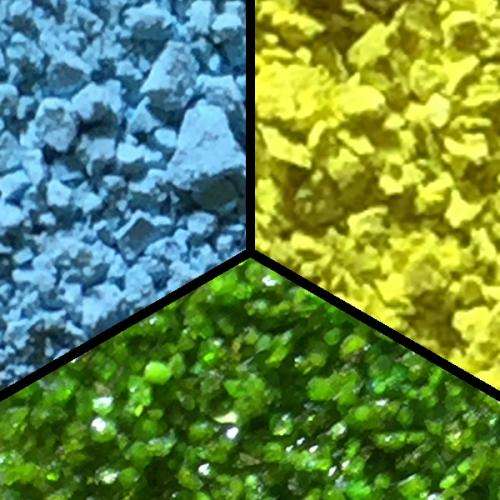Researchers discover new method to convert CO2 to a valuable organic compound

Louisiana State University researchers are contributing to ongoing work aimed at reducing the amount of carbon dioxide released in the environment. The research team, led by Andrew Maverick, Philip & Foymae West Distinguished Professor of Chemistry and acting associate dean in the LSU College of Science, has discovered a cyclic copper complex that converts carbon dioxide to oxalate, changing the environmental pollutant into a more useful organic compound.
Carbon dioxide is naturally present in the air as part of the normal circulation of carbon among the Earth's atmosphere, ocean, and land surface; however, human activities are shifting the natural carbon cycle by adding more carbon dioxide and influencing nature's ability to remove the greenhouse gas from the atmosphere.
"The particular chemistry we have discovered is more interesting than most of the things we have done, because everyone wants to solve this carbon dioxide problem. This is just one step to solving the puzzle," Maverick said.
Maverick and his research team have developed a three-step reaction sequence in which a copper complex converts carbon dioxide to oxalate under mild conditions. The copper complex is first reduced by reaction with sodium ascorbate or vitamin C. The reduced complex selectively reacts with carbon dioxide from air and fixes it into oxalate, with the oxalate ion bridging between two copper atoms.
The team, which includes Maverick, LSU Research Associate Frank Fronczek and post-doctoral researcher Uttam Pokharel, have co-authored a paper about their discovery to be published in the December edition of Nature Communications.
A key component to this discovery was the development of a compound that would react with carbon dioxide. The research team created more than 50 different compounds before finding the one that would react with carbon dioxide.
"Carbon dioxide does not want to react with just any compound," Maverick said. "Even highly energetic molecules often do not react with CO2. So, it is important to search for compounds like our copper complex, which will convert CO2 into something with a little more stored energy."
LSU has applied for an international patent for the team's work, but Maverick warns that that this discovery does not signal the end of the world's climate change issues.
"Our compound takes four to five days to react," he said. "This is much too slow for anything that is of practical use."
Maverick and his colleagues are currently working on ways to speed up this process. Conversion of carbon dioxide to useful organic compounds will continue to be an active area of research given its connection to global climate change and the depletion of fossil fuels. They are also investigating whether other compounds besides vitamin C can be used to drive the conversion.
More information: "Reduction of carbon dioxide to oxalate by a binuclear copper complex." Nature Communications 5, Article number: 5883 DOI: 10.1038/ncomms6883
Journal information: Nature Communications
Provided by Louisiana State University




















